1. Miami, Florida
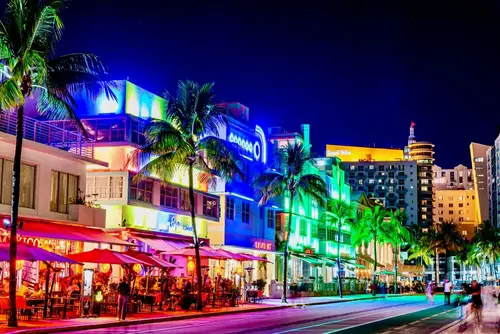
Miami might seem like a sunny escape, but politics are definitely part of the housing equation here, too. Florida’s rapid shift toward hardline conservative policies—on everything from education to immigration—has made some residents uneasy, according to Alexander Lowie of The Conversation. While some have flocked to the state for its political climate, others are packing up because they feel like it no longer represents their values. Miami is caught in that crossfire.
In particular, the state’s stance on LGBTQ+ issues and public school content has driven some families to reconsider staying. For others, concerns about rising authoritarian rhetoric or cultural shifts are making them look elsewhere. Home prices remain high, but so does political discontent in certain circles. Miami realtors say clients now bring up politics in ways that were unheard of even five years ago.
2. San Francisco, California
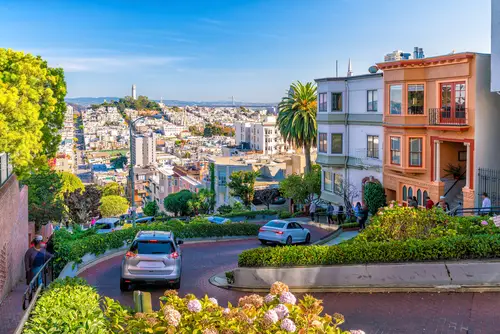
Once a bastion of progressive ideals and tech-fueled dreams, San Francisco has seen a notable outmigration—some of it driven by frustration with how local politics are handling issues like crime and homelessness, according to Tracey Lien of Vox. Residents argue that despite high taxes, city services are failing, and policy paralysis has led to unsafe or unsanitary conditions in some areas. For homeowners, especially families, these concerns have translated into a desire to move somewhere that feels more stable or better governed. There’s a growing sense that political gridlock is contributing to a decline in quality of life.
In fact, San Francisco lost more residents than any other U.S. city between 2020 and 2022, and while tech layoffs and remote work were key reasons, many cited disillusionment with city politics. Debates over progressive district attorneys and soft-on-crime policies have divided the population. For homeowners, the risk of property crime and concerns about city management are tipping points. Political fatigue, especially when change seems slow or ineffective, has become a real estate motivator.
3. Portland, Oregon
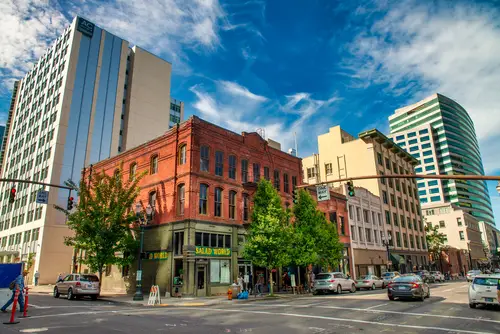
Portland’s identity as a progressive stronghold has been tested in recent years, especially after extended periods of civil unrest and growing public concerns about homelessness and public safety. Some residents who once celebrated the city’s activist energy are now worried it’s spiraled into dysfunction, according to Luke Mogelson of The New Yorker. The local government’s approach to policing and housing has polarized the community. For some homeowners, it’s no longer a place where they feel safe or heard.
A 2023 Portland State University study showed that many people leaving the city were doing so for political or quality-of-life reasons. Even among progressives, there’s concern that the city lacks effective leadership to tackle core problems. Property owners have been vocal about crime, taxes, and how these issues are handled—or not—by city hall. Those frustrations are showing up in real estate listings.
4. Boise, Idaho
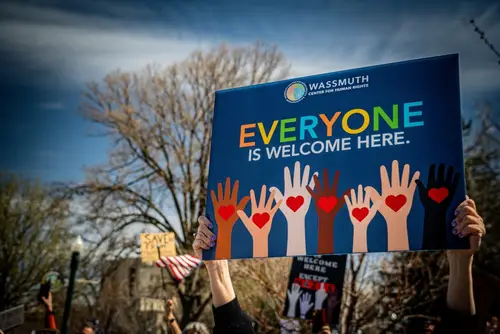
Boise has seen a huge influx of new residents in the past decade, especially from liberal states like California, Oregon, and Washington. While that’s boosted home prices, it’s also created cultural and political friction, according to Daniel Golden and Kirsten Berg of ProRepublic. Longtime locals have voiced concern that their conservative city is shifting too quickly, while some newcomers feel unwelcome or out of step with local politics. That tension is prompting both sides to reassess their place in the city.
Reports from real estate professionals show more politically motivated moves out of Boise than you’d expect for a city its size. Debates over things like LGBTQ+ rights, school curricula, and gun laws have created discomfort. For some, it’s about preserving traditional values; for others, it’s about finding a more inclusive community. Either way, it’s led to more “for sale” signs in neighborhoods across the city.
5. Chicago, Illinois
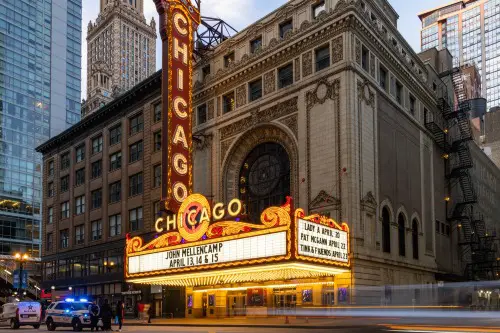
Chicago’s politics have always been lively, but recent years have seen deep divisions over policing, crime, and taxation. Some homeowners say they’re leaving because they don’t feel safe, or they don’t feel represented by city leadership. Others are frustrated by high property taxes that keep rising without noticeable improvements in services. These issues, wrapped in a political narrative, are pushing people out.
Following the 2023 mayoral election, which leaned further left, some more moderate or conservative residents decided they’d had enough. Conversations around police funding, school policy, and business regulations have been hot-button issues. The feeling that the city is being mismanaged—whether fairly or not—has become a common refrain among sellers. Political weariness, paired with economic concerns, is pushing people toward the suburbs or other states entirely.
6. Austin, Texas
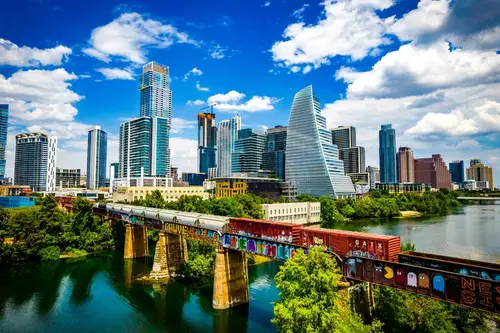
Austin has long been known as a progressive bubble in a traditionally conservative state, but that contrast is starting to wear on some residents. People moving into the city from more liberal areas are sometimes shocked by statewide policies on issues like abortion, guns, and education. Meanwhile, long-time Texans who feel Austin has become “too woke” are relocating to smaller towns or even leaving the state. The political tension has made real estate a pressure valve for ideological frustration.
It’s not just anecdotal—real estate agents in the area report a noticeable uptick in clients citing politics as a reason for leaving. Recent state policies, such as Texas’ restrictions on abortion and curriculum changes in schools, have only added fuel to the fire. Some families feel their values no longer align with the broader state direction. That mismatch has become a motivating factor for listing homes.
7. Denver, Colorado
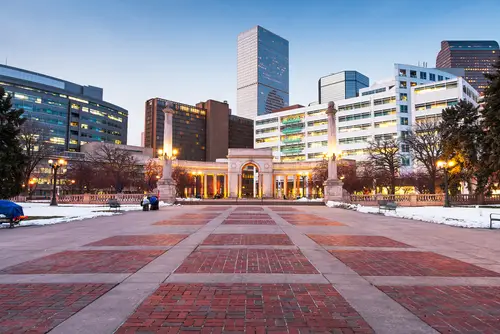
Denver has experienced a political and demographic shift in recent years, with progressive policies taking stronger hold as more people move in from out of state. But not everyone is on board with the changes. Some long-time residents are frustrated by rising property taxes, soft-on-crime narratives, and debates around urban development and homelessness. That discontent has sparked a wave of politically motivated moves, especially toward more conservative suburbs or out of Colorado entirely.
In 2023, Denver voters supported ballot measures to address homelessness, but critics argued they didn’t go far enough—or went too far. This disconnect is driving homeowners to feel increasingly out of step with their city. It’s not uncommon to hear sellers cite “the politics” as part of their reason for moving. As ideological battles play out in city council meetings, people are voting with their feet.
8. Seattle, Washington
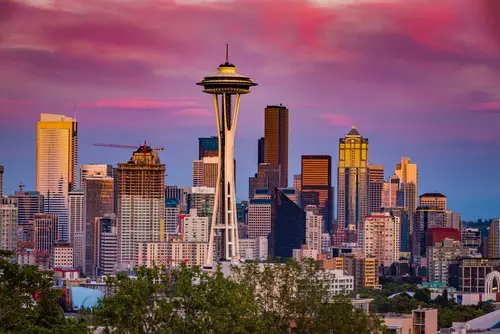
Seattle is known for its progressive values, but that doesn’t mean political harmony. Rising crime, homelessness, and disputes over policing have fueled a growing sense of frustration among residents. Even people who share the city’s general political orientation are starting to question whether leadership is getting results. That gap between values and execution has become a big reason people are selling.
Some residents feel the city government is too slow to address practical issues, while others feel reforms have gone too far or not far enough. Debates over zoning, public drug use, and police funding have become divisive. And for families or professionals who feel the city’s trajectory is uncertain, selling their home has become a first step toward change. The political vibe, once a selling point, has turned into a sore spot for many.
9. Nashville, Tennessee
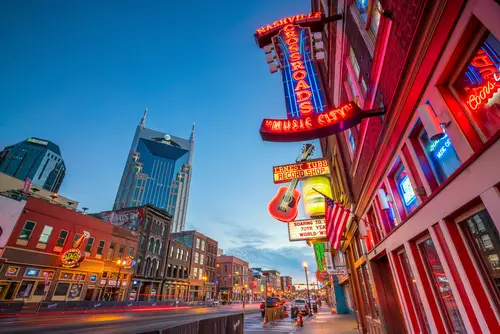
Nashville’s growing population has brought in a more diverse and often more liberal crowd—but that’s created friction in a historically conservative state. State-level decisions on abortion, drag shows, and gun laws have alarmed some newer residents, while long-timers feel like their city is becoming “too blue.” The resulting culture clash has pushed some to seek communities that better reflect their own values. And in a market with rising home values, now’s a good time for a strategic exit.
A notable flashpoint was when Tennessee’s legislature expelled two Democratic lawmakers in 2023 after a gun protest—sparking outrage in Nashville and beyond. That moment symbolized the disconnect between city and state. Residents who felt alienated by the move, or who worry about future political instability, began reevaluating where they want to live. Politics became personal, and for many, it affected their real estate decisions.
10. Atlanta, Georgia
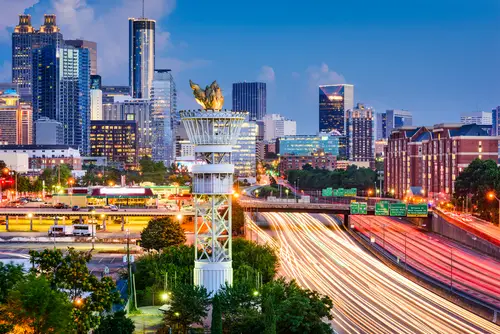
Atlanta sits at the heart of a purple state—and that tension has made its way into the housing market. While the city itself leans progressive, state laws and policies can sometimes feel at odds with urban residents’ values. High-profile issues like voting rights restrictions and abortion laws have made headlines, causing some homeowners to feel politically isolated. For those frustrated by the clash, relocating has become more than a lifestyle choice—it’s a values-based decision.
Real estate agents in the area say that since the 2020 and 2022 election cycles, they’ve seen increased political anxiety among clients. Some are leaving Georgia entirely, citing growing concerns about the state’s direction. Others are heading for suburbs they perceive as more politically aligned with their beliefs. When your local and state governments feel out of sync, selling your home can feel like the most tangible way to take back control.
11. Los Angeles, California

Los Angeles has always leaned blue, but lately, even liberals are expressing fatigue with how politics are playing out on the ground. Concerns about homelessness, taxes, and crime have become deeply political—and deeply personal. Many homeowners say they feel overtaxed and underserved, especially in areas where basic services feel unreliable. The frustration isn’t necessarily with values, but with execution and leadership.
In 2023, the city passed measures to address housing and homelessness, but progress has felt slow. That’s pushing residents to look elsewhere, especially if they’re politically moderate or fiscally conservative. Add in state-level concerns like regulation and energy policy, and some residents feel boxed in. For a city known for opportunity, more and more people are saying goodbye out of political exasperation.
12. Minneapolis, Minnesota

The political spotlight hit Minneapolis hard after the 2020 killing of George Floyd, and the city has been grappling with its identity ever since. Calls to defund or reform the police split residents, and efforts to redesign public safety systems have been contentious. For many homeowners, the debates have felt both existential and exhausting. Whether on the right or left, people who feel unheard or unsafe are looking to relocate.
Ballot initiatives to replace the police department were defeated, but the tensions they highlighted remain. Some residents have lost trust in local governance, and the divisions have strained the social fabric. People who once proudly called Minneapolis home are questioning whether it’s the right place to raise a family or retire. And that’s directly affecting the housing market.
13. Phoenix, Arizona
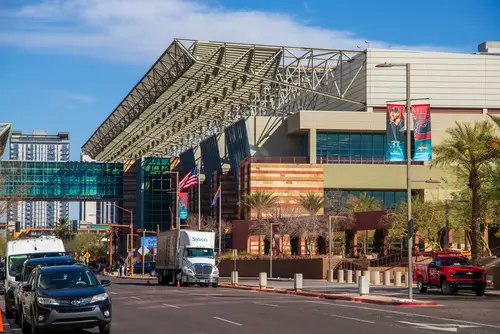
Phoenix is another fast-growing city facing the pressures of rapid change—and growing political divides. As Arizona has become a swing state, politics here have gotten louder and more polarized. The battles over voting laws, border policy, and reproductive rights have made headlines—and made some residents uncomfortable. That polarization is starting to show up in the real estate data.
Some conservatives are leaving because they feel their state is turning too purple, while some liberals say state laws are too regressive. It’s a strange dynamic where both sides feel like they’re losing ground. Real estate agents say clients are increasingly asking about political climate—not just schools and amenities. That kind of shift makes Phoenix a textbook example of how political identity is influencing housing choices.


